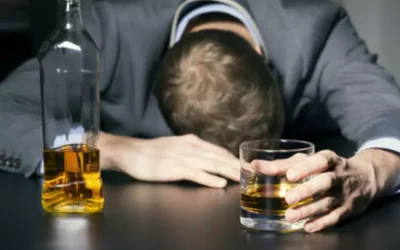Content
Guilt in sobriety threatens to derail recovery when mishandled. Often, it’s shame, guilt’s evil twin, which takes recovering folks down. And guilt can morph into shame if you aren’t careful. It is a challenge that takes time, effort, and emotional maturity, but it is one of the best things you can do for your mental health.
And he says, it’s the unthought known, you know it but you can’t think it, you know what, but you can’t think it and we can understand that from a brain perspective, easily enough. Let me start by saying that shame is the most stressful human emotion. Why wouldn’t humans get skittish with the most stressful human emotion? Psychology measures stress by measuring elevations in stress hormones, the two primary stress hormones are cortisol and adrenaline. And so I realize it’s definitions, but it’s really important that at least people understand the way I’m defining them.
Addiction Treatment Programs
Beat back the shame and guilt by making a sincere effort to fix the mistakes you’ve made, and undoing some of the damage. Accepting the consequences of your actions may take time, but it is vital to healing. Shame and guilt make recovery more difficult, so developing coping skills is a key step on the path to sobriety. Those in recovery must learn to forgive themselves and deal with their guilt positively, otherwise, the patterns of addiction may continue. Break away from guilt and shame and turn your focus to the present, on the person you are today.

Guilt and shame in addiction – The two of the most commonly experienced emotions for anyone suffering from addiction. The definition of guilt is a feeling of responsibility or remorse for wrongdoing. Therefore, similarly to shame, people suffering from addiction often feel guilty about the harm they have caused to others, most specifically their family and loved ones. People in active addiction may also feel guilty about mistakes they’ve made, responsibilities they have been unable to fulfill, and the impact their addiction has had on their own life and the lives of others.
Bringing Real Change
There was, I think it was sometimes it’s kind of a supplement for me, I got also involved. Now, now, having made that distinction, what’s to be done about this? You know, I’ve practiced for 10 years now, something I got very active early on, I’ve just, it’s okay if I speak personally.
While addicted a person might steal from family members, and hurt people, to get their drugs. They realize they are guilty and may feel bad as a result. Still, they continue the bad behavior while addicted, or before beginning recovery.
Letting Go of the Past: How to Heal Guilt in Sobriety
People using drugs and alcohol often feel ashamed of their behavior, their inability to stop, moderate, or control their drug and alcohol use, the hurt they’ve caused their loved ones, and many behaviors they exhibit. Shame is defined as a feeling of humiliation or distress caused by the awareness of having done something wrong or foolish. This is why guilt and shame in recovery feelings of shame and guilt are often connected. Guilt is the emotion that arises when an individual believes that they have done something bad or wrong. Additional feelings of guilt and shame often accompany substance use disorders. People might feel ashamed of using substances and guilty about how their substance abuse affects their loved ones.
Guilt and shame, if not handled, take hold during these new moments in recovery. A newcomer may feel smothered by self-hatred when confronting past using behaviors. If the self-hatred gains strength, it’s easy to feel drawn to the familiar and comfortable numbing with substances, sex and other distractions. Spend time with people who care about you and accept you for who you are.
Self-compassion requires us to consciously acknowledge and accept the pain caused by our previous wounds. Individuals with a deep and ongoing shame of themselves are, by nature, isolated with deep and closely held feelings of being unworthy and unlovable. This, in turn, is linked to depression, and the use of alcohol and drugs is often initially a form of self-medication. Here are some suggestions for dealing with guilt and shame before and after addiction treatment.
- Understanding the roles they play can help you learn to properly cope with them and recover from addiction.
- Focus on what your life is today, and where you are in recovery right now.
- Some may feel shame even after correcting a misdeed or even for no reason at all.
- But I’ve asked clients, what do you feel in your body around shame, and I’ve gotten a number of responses.
- Despite these challenges, it’s essential to recognize that guilt and shame can hold you back from getting the help you need.
- If shame is the most stressful human emotion and shame leads me to freeze that how does that show up?
Guilt and shame are two strong emotions that often accompany drug addiction and recovery. People may have started using drugs in the first place because of shame, and of course, feelings of guilt followed. These emotions need to be addressed to have a successful addiction treatment. Shame and guilt are natural emotions to experience if you’re struggling with substance abuse, but these feelings don’t have to hold you back from seeking treatment.
.9 Suggestions for How to Cope with Feelings of Guilt
One of the biggest pieces of recovery is how to deal with this thing that we’re talking about today, which is a shame. So if we can develop a practice, and I’ve been practicing it daily, I did it this morning, I did it while I swim. I personally believe that regret and we may talk later about guilt, I believe that regret and guilt are right and necessary for healing. And, by regret, what I mean is, is deep sorrow, deep sorrow for the wrongs we’ve done.
Shame tells a person they do not deserve to get better, and that person may even feel guilty over that. The bad thing is, no self-punishment is ever enough, and it only continues to get worse. Shame ultimately damages your self-worth, causes depression and makes recovery harder.
Because feelings of guilt and shame can be triggering for those in recovery, it is essential to know specific coping strategies for dealing with them. Not only should you have coping strategies, but you should also know how to break the cycle of guilt and shame if you dive too deep into these feelings. Even though guilt and shame both play a similar role in addiction and can even seem like similar emotions, https://ecosoberhouse.com/ they are different. Knowing the differences to identify what you are feeling is the first step in understanding the roles they play in addiction and the effects they can have on you. While these feelings can make addiction treatment challenging, they can also play a vital role in sustaining long-term recovery. Shame and guilt may be uncomfortable, but they are not always negative and can serve a purpose.
Recognizing how these feelings can impact recovery can mitigate doubt and allows people to focus on strengthening their recovery and resilience. Researcher Abilgail W. Batchelder and her colleagues utilized a sample of 110 sexual minority HIV positive men living in the San Francisco area who have been confirmed as using methamphetamines. The study design was a randomized controlled trial.





